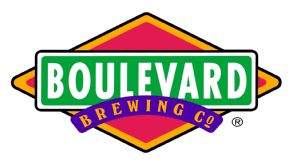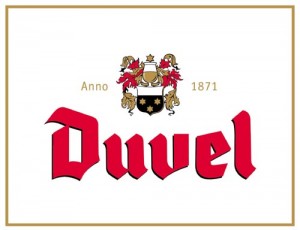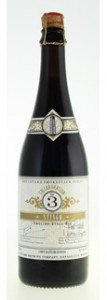
The deal, announced Thursday afternoon, is expected to close before the end of the year. While terms were not disclosed, industry sources have estimated its value as at least $100 million.
Michel Moortgat, the chief executive officer of Duvel Moortgat, said the acquisition is initially being financed with bank debt that the company plans on reimbursing with cash flow from the parent company’s international business.
Boulevard, which sold 173,793 barrels of beer in 2012, and Brewery Ommegang, which sold 37,800 hectoliters (approximately 32,200 barrels), will be rolled into a holding company that will also control all of Duvel Moortgat’s import brands in the U.S. In 2012, the company sold a combined 63,200 hectoliters (about 53,800 barrels) in the U.S.
“It was a very interesting morning for me to come into my brewery, see the smokestacks and realize that henceforth, things will be a little different,” said John McDonald, who started Boulevard in 1989. “I have been working on this for a couple years, trying to figure out the right path for the brewery. I really am excited about this merger. We couldn’t have found a better partner and I am really excited about the future.”
As part of the deal, McDonald will receive preferred stock in the new U.S. holding company; his role in the project has yet to be determined.
The deal will comprise the first major craft brewery acquisition since Goose Island was purchased by Anheuser-Busch InBev in March 2011, for $38.8 million.

“The combination of Boulevard and Duvel makes us a bigger and more important business partner for our wholesalers,” he said.
No employees will lose their jobs in the merger and the entire sales and management team will grow to about 60, Mr. Moortgat said, adding that brand representatives might change roles in some markets.
“I am going to be a part of a new Boulevard Brewing Company that is partnered up with one of the greatest, most iconic breweries in the world, and that is not a bad thing,” McDonald said. “I think one of the greatest synergies we have with their company is the idea of new markets. They look at the world globally, but in a local way.”
Rumors Turn to Reality

While the pace of investment in craft breweries has been slower than expected for such a fast-growing consumer product category, deals involving Ommegang and Boulevard, the individual brands at the center of the investment, have been expected for some time.
Whispers about a Boulevard buyout began to circulate last October when Boulevard founder John McDonald told Brewbound that he had engaged in investment discussion with the MillerCoors-owned craft and import division, Tenth and Blake.
At the time, McDonald stressed that he wasn’t interested in selling his brewery. But over the course of the last year, McDonald, who is 60, took a second look at his succession planning options.
Meanwhile, in August, Duvel U.S.A. CEO Simon Thorpe told Brewbound that he was planning a shopping spree of two or three U.S. craft breweries over the next five years. McDonald had also been impressed by a presentation he had seen Thorpe give in May on the company’s overall luxury branding strategy, setting the table for an approach.
“I really wanted to find a partner that could take us in the right direction going forward,” McDonald said. “They are owners and brewers. With an investor, you get their money and oversight but at the end of the day you end up explaining a lot about brewing. They [Duvel Moortgat] bring a great synergy.”
Mr. Moortgat sees it the same way and said he’s most excited about continuing to build the Boulevard legacy.
“We realized that we are both family businesses and share the same values,” he said. “We believe that people and quality of beers are important. We could see that in John and he saw that in us. He was looking for a long-term partner and we are going to continue investing in the business.”
Synergies

“The future for us in the U.S. will be more with the Boulevard and Ommegang brands rather than Duvel and imports,” Moortgat said. “Although we still believe it is a high-quality and iconic brand, it has its own role to play and that is different.”
Boulevard brings to the table a distribution footprint that is strong in its home midwest region and has expanded into Massachusetts and California in recent years. It also has a brewery that can already churn out 240,000 barrels annually and is capable of being scaled to 600,000 barrels with additional investment in infrastructure and fermentation tanks.
At first, it will be business as usual, but future plans could include the brewing and packaging of specialty Boulevard Smokestack selections at Brewery Ommegang’s facility in Cooperstown, N.Y. where the company said it is better designed to handle more difficult-to-make beers.
“In the beginning, nothing will change at Boulevard,” Mr. Moortgat said. “They are doing a great job and you never change a winning team. We will learn why and how they do things and how we can implement some of their learnings into the Ommegang brewery and the other way around.”
Nonetheless, there are underlying integration challenges, specifically with regards to distributor alignment. Boulevard, which is currently distributed in 25 states and Washington D.C., has just seven of Duvel Moortgat’s wholesalers in common: Arkansas, Georgia, Indiana, Oregon, Virginia and Washington D.C. But in remaining overlapping markets like Texas, Colorado, Illinois, California and Massachusetts, among others, the two have different distributors.
While Mr. Moortgat said that Duvel Moortgat is not immediately interested in consolidating the distribution footprints, he’s not ruling it out, either.
“We are happy if we have highly motivated wholesalers even if they are different,” he said. “If we find that one of the two would insist on consolidation, we are willing to talk about it. It is not something that we are going to do from day one and it will be discussed situation by situation with specific wholesalers to see what is best in the interest of all the parties.”
However, if Duvel Moortgat’s recent history with wholesalers provides any indication, consolidation could be on the way. In the last 24 months, the company has been involved in 28 transactions where distribution rights were sold to a competing wholesaler. Among others, in Pennsylvania, Origlio Beverage sold Duvel Moortgat distribution rights to Muller, Inc.; in Florida, Brown Distributing Co. purchased the rights from Micro Man Distributors.
In each case, Duvel Moortgat claimed that the outgoing distributor failed to demonstrate a high level of motivation to effectively sell the portfolio to retailers.
Duvel’s History of Acquisitions
The purchase of Boulevard is just the second U.S. acquisition for Duvel Moortgat since the company took complete control of the Brewery Ommegang in January of 2003. But the strategy of purchasing U.S. craft brands follows Duvel Moortgat’s pattern of growth through acquisition. In the last 10 years, in addition to Ommegang, the company has acquired three Belgian breweries Brasserie d’Achouffe, Brouwerij Liefmans and Brouwerij De Koninck.
“We have always looked to countries where people tend to drink less, but better,” Mr. Moortgat said. “One of the evolutions in the U.S. is the focus on quality and that, in addition its size, is very strongly present. That is why the U.S. market has always been an interesting one for us.”
To help explain the motivation for growing in this way, Mr. Moortgat points to the 2006 acquisition of Brasserie d’Achouffe. Since the purchase, Duvel Moortgat has invested behind a growing salesforce, added production capacity and a new bottling line. In the last 7 years, sales have grown from roughly 20,000 hL to an anticipated 125,000 in 2013.
“It proves that you can do things well, keep the specificity and knowledge and strengthen it with your own talent,” he said.
In other words, he said, Duvel Moortgat isn’t simply looking to buy craft companies, strip them down and consolidate. They’re looking for top line growth potential. But the company’s penetration in the U.S. has lagged behind its international presence. Mr. Moortgat said the company will sell roughly 900,000 hectoliters (766,951 barrels) of beer, worldwide, in 2013; only 90,000 hL (about 76,700 barrels) will be sold in the U.S.
That’s why the company has made the U.S. craft market a priority — and targeted a well-established American craft brewer, one that has a strong base in the Midwest, a region that has not been as strong for Ommegang.
“John [McDonald] is a monument in the craft beer industry,” Mr. Moortgat said. “We have been in the U.S. for many years but they know the market very well also. We want to learn from them.”
